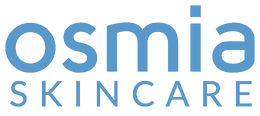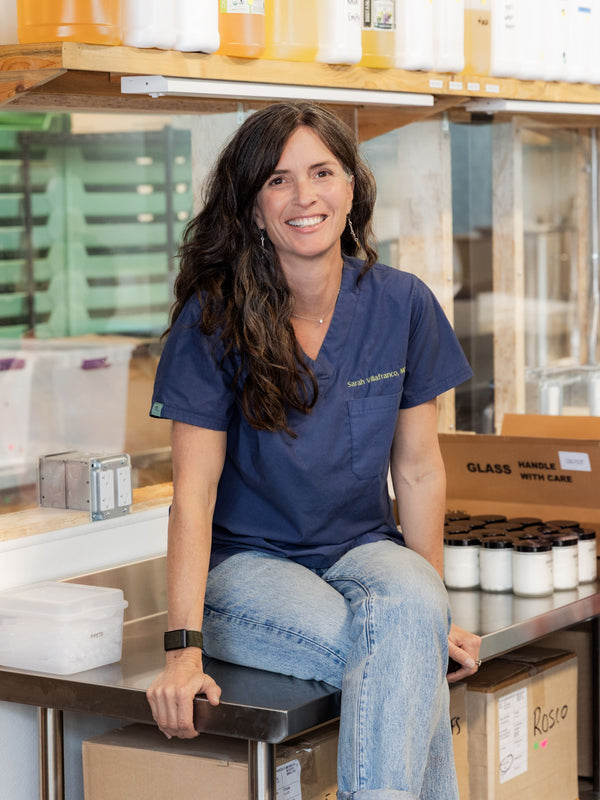What Is Sodium Lauryl Sulfate (SLS)?
Sodium lauryl sulfate is used in almost everything that foams. It’s also referred to as a surfactant and/or a synthetic detergent (syndet), and is used to create bubbles and a cleansing action in foaming products, such as toothpaste, shampoo, body wash, and laundry detergent. It’s generally considered safe, and can be (but often isn’t) naturally-derived and biodegradable. The trouble is, for many people (myself included), SLS spells trouble.
Because SLS is in so many of the products we use in our homes every day, a lot of us have developed a low level sensitivity to it over years of constant use. So, even if you weren’t sensitive to it before, you could be sensitive to it now. If you’re struggling with any skin conditions, from sensitive skin to eczema to dermatitis, getting rid of SLS in your daily routines is a worth the effort. Since that can involve a ton of products, I thought a few specific recommendations might help, which inspired me to write this post!
Where Does Sodium Lauryl Sulfate Come From?
SLS can be made from petroleum products or from plant-based ingredients like palm or coconut oil. Allegedly, it was originally used as an engine degreaser in World War II, though I can’t find any facts to back this up properly. I do know that even now, it’s used in medical studies when researchers need to create skin irritation: in order to test a soothing product, they must first have irritated skin to soothe! They use SLS in a higher concentration than what you’ll find in personal care products, which is why it’s irritating, but even concentrations as low as 1-2% create reliable irritation. According to a 2019 article in the British Journal of Dermatology, “Sodium lauryl sulfate [SLS; synonym: sodium dodecyl sulfate (SDS) or C12H25NaO4S] is a surfactant that is used in many household and hygiene products. It has an irritating effect on skin and is therefore used extensively in models for testing the response of skin to irritants.”
What’s The Difference Between Sodium Lauryl Sulfate (SLS) And Sodium Laureth Sulfate (SLES)?
Sodium laureth sulfate (SLES) is an ethoxylated version of sodium lauryl sulfate, and is supposed to be more gentle on your skin with less irritation potential. Unfortunately, I’ve found that if you’re sensitive to one, you’re probably sensitive to both, even when they’re plant-derived and biodegradable. That’s tricky because a lot of green brands use the ingredient, so you really have to dig in and do your homework. Also, sodium laureth sulfate is ethoxylated, and we think that’s a bummer for Planet Earth.
Who Should Avoid Sodium Lauryl Sulfate?
It’s super hard to know if your skin is misbehaving as a direct result of SLS, but the safest move if you have skin issues is to avoid it completely, at least until your skin feels happy again. Specifically, SLS can exacerbate all forms of dermatitis (like perioral dermatitis and eczema), psoriasis, sensitivity, and most other mysterious rashes. If your skin gets better after eliminating SLS, you can always try reintroducing it carefully to see if your skin gets worse again. (That said, the brands I’m sharing here are so awesome that you may never look back.)
What About Sodium Cocosulfate (SCS) Or Sodium Lauryl Sulfoacetate (SLSa)?
Sodium cocosulfate (SCS) actually contains some sodium lauryl sulfate—it’s a surfactant made from whole coconut oil rather than the isolated lauric acid used to make SLS. The SCS molecule is larger than the SLS molecule, so it should penetrate the skin less, reducing its irritation potential, but if you’re super sensitive to SLS, you may want to skip SCS also.
Sodium lauryl sulfoacetate is a similar surfactant derived from coconut and palm oils, and has a larger molecular size than SLS or SLES; this means it should be less irritating than SLS or SLES, but it’s still possible you could react to it if you’re sensitive.
What’s The Best Body Wash Without Sodium Lauryl Sulfate?
Bar soap! But not just any bar soap. Commercially made soaps sold at the grocery store often contain other synthetic detergents, synthetic scents, and synthetic colors, all of which can dry your skin and cause irritation. Look for natural, handmade, cold-process bar soap; it’s rich in glycerin, contains no synthetic detergents, and is beautifully moisturizing to your skin. Look for ingredient lists that don’t contain FD&C colors or “fragrance,” both of which can irritate sensitive skin. Of course, we think Osmia body bars are the best in the world! Our bars are made with natural botanical powders or clays for color, and only high-quality essential oils for scent. We also offer plenty of unscented options, which we recommend if you’re dealing with seriously upset skin.
What Is The Best Laundry Detergent Without Sodium Lauryl Sulfate?
More and more laundry products are coming on the market without SLS, but many of them still use loads of ethoxylated ingredients (like the little detergent sheets for the washer) and synthetic fragrance (look for “fragrance” or “Parfum” on the label). My favorites, both of which work super well for my family of athletes (translation: dirty, sweaty clothes), are these two:
-Molly’s Suds makes both powder and pods, scented (naturally) or unscented. We also use their oxygen booster.
-Branch Basics also has an oxygen booster, and we often use their concentrate to make laundry detergent.
What Is The Best Shampoo Without Sodium Lauryl Sulfate?
This is a hard one, because there are lots of SLS-free brands on the market, and many of them are great! That said, my favorite budget-conscious picks are Desert Essence and Acure, and my favorite performance picks are Josh Rosebrook, Innersense, and Evolvh. Specific products I’ve tried and really like are listed below, with more detailed information in this post.
-Josh Rosebrook Balance Shampoo and Conditioner
-Innersense Clarity Shampoo and Conditioner
-Desert Essence Unscented Shampoo (contains SCS) and Conditioner
-Acure Ultra Hydrating Shampoo and Conditioner
-Evolvh UltraShine Moisture Shampoo and Conditioner
What Is The Best Toothpaste Without Sodium Lauryl Sulfate?
I just ordered some toothpaste tabs from Bite, and have been loving them so far! I have been using Jason Seafresh toothpaste in the Deep Sea Spearmint flavor for years, and really like that one as well.
What Is The Best Dish Soap Without Sodium Lauryl Sulfate?
Molly’s Suds makes a nice dish soap. They have a few fragranced options, but state that their fragrances are all plant-derived, free of phthalates and ethoxylates, and that they are Safer Choice and ISO-9235 compliant.
What Is The Best Dishwasher Detergent Without Sodium Lauryl Sulfate?
-Molly’s Suds makes dishwasher soap pods now, and they seems to work great. I’ve used it in my dishwasher several times now, and my dishes come out sparkling! It has a nice citrus, plant-derived fragrance.
-Branch Basics also has dishwasher tabs, and they’re nice because they are like tiny little hockey pucks of detergent without any scent, and I have found them to be super effective.
What Is The Best All-Purpose Household Cleaner Without Sodium Lauryl Sulfate?
I have to go with Branch Basics on this one. I buy their concentrate, which you can use to make a glass cleaner, a laundry detergent, an all-purpose cleaner, and a bathroom cleaner, for which they sell reusable glass containers. I add a few drops of essential oil to mine: lavender and geranium to the laundry detergent, lavender and grapefruit to the all-purpose cleaner, rosemary (chemotype verbenone) to the bathroom cleaner, and eucalyptus to the glass cleaner.
Hope this helps you find lots of great, SLS-free products for your skin, hair, teeth, and home! If you’re struggling with any skin conditions, getting rid of SLS may be a critical step in the long term health and happiness of your skin! And if you have any questions, please shoot us a note at help@osmiaskincare.com—we’d love to hear from you!

The information contained in this post is for educational interest only. This information is not intended to be used for diagnosis or treatment of any physical or mental illness, disease, or skin conditions.























